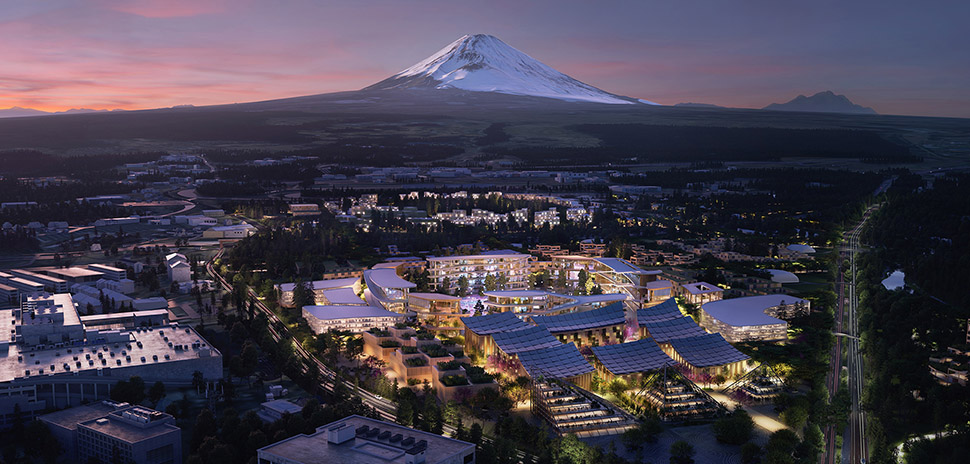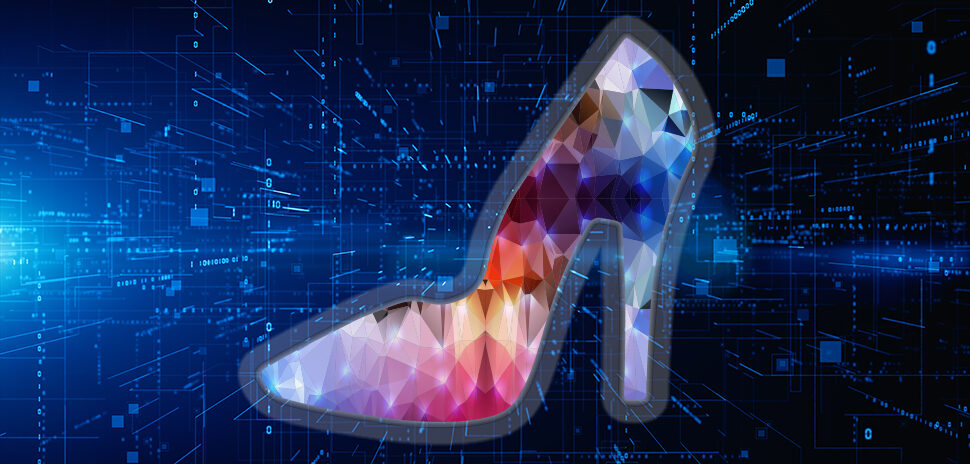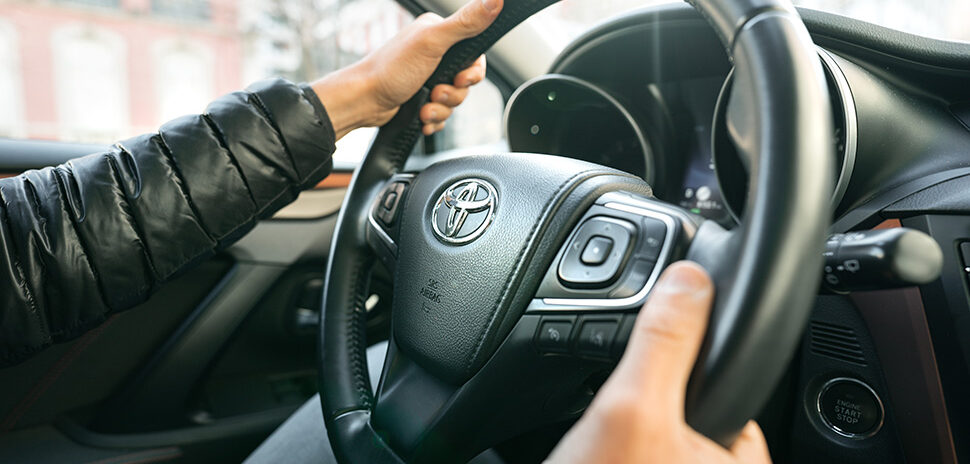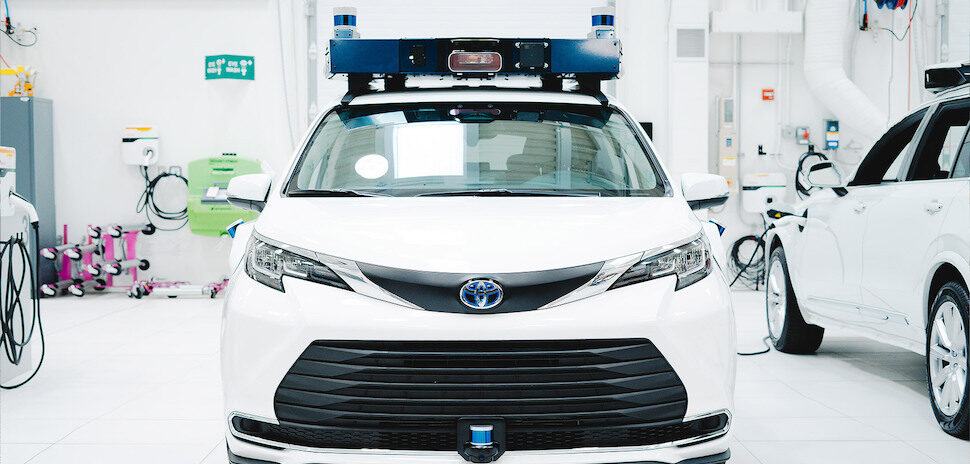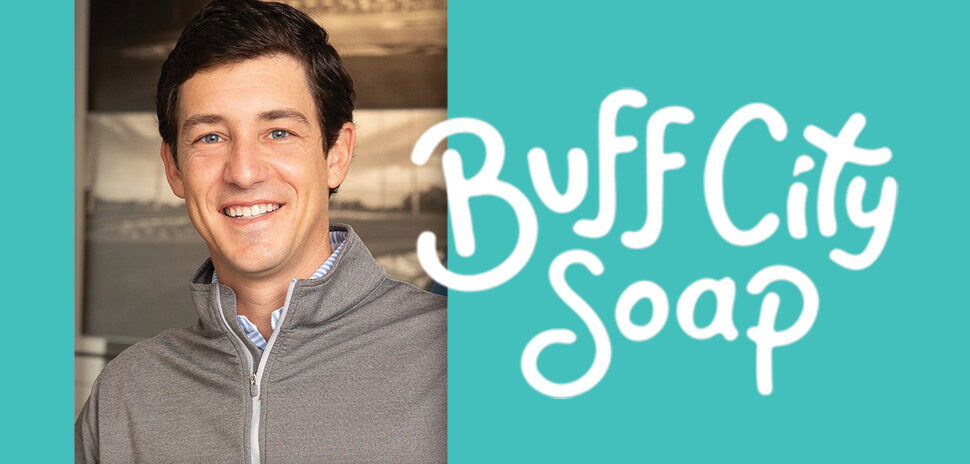Toyota is taking this year’s CES smart city theme one better with an announcement that it’s building a prototype city of the future at the base of Mt. Fuji in Japan. The project—to be called the “Woven City”—will be a fully connected ecosystem built on a 175-acre site and based on hydrogen fuel cell power. Groundbreaking is expected in early 2021.
“Building a complete city from the ground up, even on a small scale like this, is a unique opportunity to develop future technologies, including a digital operating system for the city’s infrastructure. With people, buildings and vehicles all connected and communicating with each other through data and sensors, we will be able to test connected AI technology … in both the virtual and the physical realms… maximizing its potential,” said Akio Toyoda, president of Toyota Motor Corporation, in a statement.
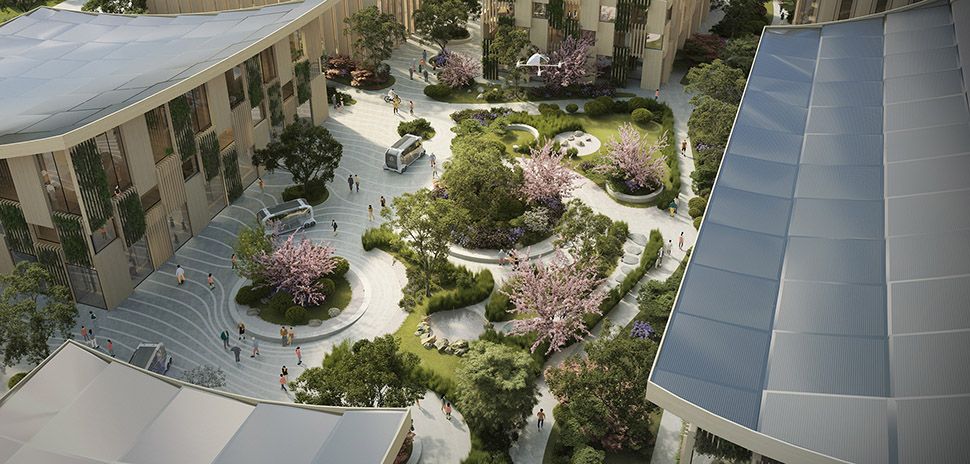
[Rendering: Toyota]
Woven City will serve as what Toyota describes as a “living laboratory.” The automotive giant, which has its U.S. headquarters in Plano, expects it to be home to residents and researchers to develop, test, and use emerging tech like autonomy, robotics, personal mobility, smart homes, and artificial intelligence.
Woven City residents will include Toyota Motor Corporation employees and their families, retired couples, retailers, visiting scientists, and industry partners. It’s planned to have around 2,000 residents in the beginning, with more expected to be added as the project evolves.
Toyota said it will also offer an open invitation to commercial and academic partners, interested scientists, and researchers to collaborate and work on their own projects in what is expected to be a unique, real-world incubator for leading edge technologies in action.
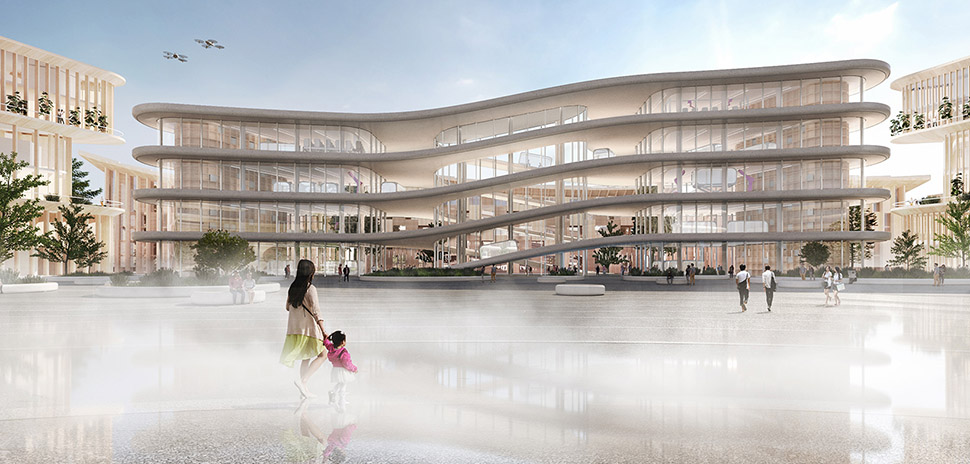
[Rendering: Toyota]
“We welcome all those inspired to improve the way we live in the future, to take advantage of this unique research ecosystem and join us in our quest to create an ever-better way of life and mobility for all,” said Toyoda.
The city design will designate street usage into three types: faster vehicles only; a mix of lower speed vehicles, personal mobility, and pedestrians; and a park-like promenade for pedestrians only. Its buildings will be fully sustainable and mostly made of wood to minimize the carbon footprint and using traditional Japanese joinery along with robotic production concepts and will feature rooftops covered in photo-voltaic panels for solar power to augment the hydrogen fuel cells.
READ NEXT Toyota Motor North America CEO Jim Lentz to Retire in April
Homes will include tech such as in-home robotics to assist with daily living and sensor-based AI that monitors the residents’ health, takes care of basic needs, and enhances daily life. Only fully autonomous, zero-emission vehicles will be allowed on the main roads and autonomous Toyota e-Palettes will be utilized for transportation, deliveries, and changeable mobile retail.
The Woven City will be designed by Danish architect, Bjarke Ingels, CEO, Bjarke Ingels Group (BIG), whose projects include 2 World Trade Center in New York, Lego House in Denmark, and Google’s Mountain View and London headquarters.
“A swarm of different technologies are beginning to radically change how we inhabit and navigate our cities. Connected, autonomous, emission-free and shared mobility solutions are bound to unleash a world of opportunities for new forms of urban life. With the breadth of technologies and industries that we have been able to access and collaborate with from the Toyota ecosystem of companies, we believe we have a unique opportunity to explore new forms of urbanity with the Woven City that could pave new paths for other cities to explore,” said Ingels.
![]()
Get on the list.
Dallas Innovates, every day.
Sign up to keep your eye on what’s new and next in Dallas-Fort Worth, every day.

